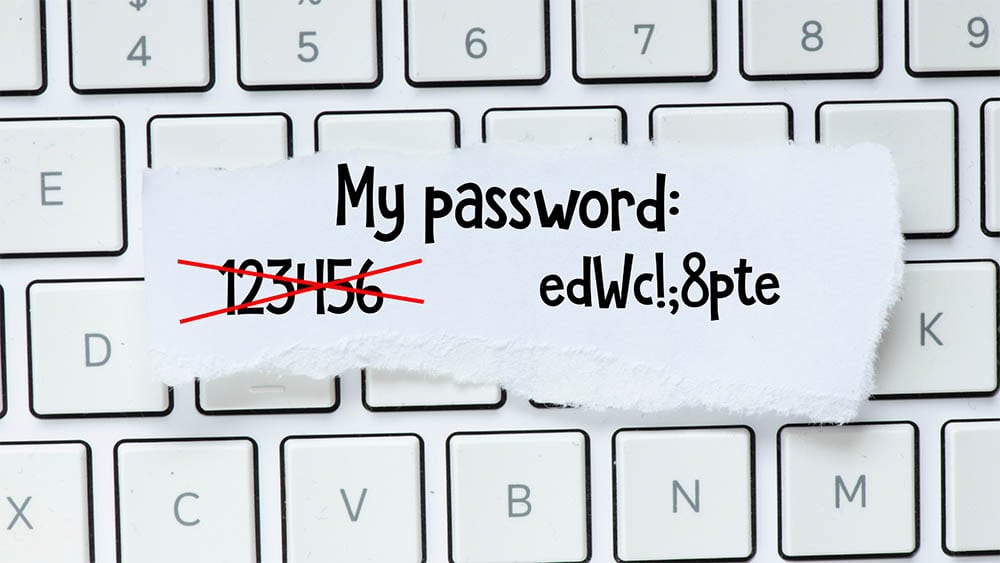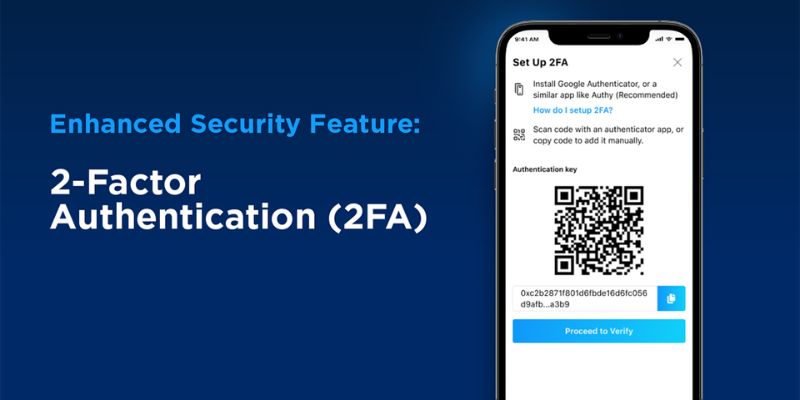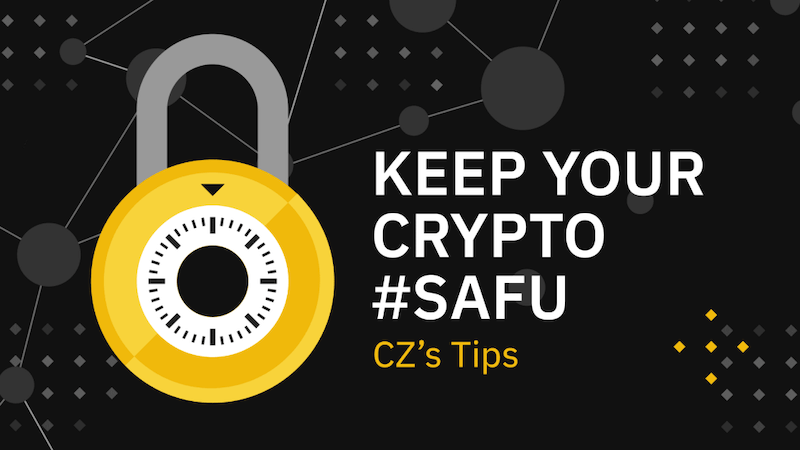Understanding the importance of strong passwords for crypto wallets starts with accepting one truth: your digital assets are always a target. Think of your password as a shield. The stronger it is, the safer your coins. Weak passwords invite trouble—hackers crack them like nuts, and your valuable currencies could vanish before you blink. Here, I’ll show you how to create an ironclad password that guards your crypto wallet. Think of this as your personal vault door, protecting your digital gold. Let’s dig into how you can turn your password into an unbreakable fortress, fend off cyber threats, and keep your investments locked tight.
Understanding Crypto Wallet Security Fundamentals
The role of password strength in safeguarding digital currencies
Your crypto wallet is like your home. You wouldn’t use a weak lock on your front door, right? The same goes for your crypto wallet. The password is the key. A strong password is your first, strong wall against thieves trying to break in and steal your digital money.
How strong should it be? Think of something long, with letters, numbers, and special signs. Mix them up. It’s like making a secret code that only you know. This keeps your crypto safe from hackers who try to guess your password.
A good password is hard to guess and different for each crypto wallet. This means even if one gets cracked, the others stay safe. It makes sure that only you can get to your money and nobody else.
Types of cyber threats targeting cryptocurrency wallets
Hackers are always looking for ways to steal your digital cash. They use tricks like fake emails or websites to trick you into giving them your password. This is called phishing. They can also try to guess your password with many guesses very fast. We call this a brute force attack.
There’s also a trick called keystroke logging. It’s a sneaky software that records what you type. Yes, even your password! That’s why a strong, secret password helps. It’s harder for these bad tools to crack it.

For a safer wallet, you need to think ahead. Make a recovery phrase. It’s like a backup key. If you forget your password, this phrase helps you get back in. But keep it safe and secret too!
Remember, your money is only as safe as your password. Simple passwords won’t do. Create a strong key to your digital treasure. Keep it close, keep it safe, and change it sometimes, just like how you change the locks. Always stay a step ahead of those cyber thieves!
Crafting Unbreakable Passwords for Wallet Protection
Principles of secure password generation for crypto storage
Creating strong passwords keeps your money safe. Think of passwords like a secret key to your digital treasure chest. If the key is too simple, a robber could easily steal your coins. Here’s how to make a good key:
- Combine letters, numbers, and symbols: This mix stops hackers from guessing your password.
- Make it long: A longer password is tougher to crack.
- Stay unique: Don’t use the same password for different things. This keeps all your money and info safe, even if one password gets found out.
- Avoid common words: Easy words or obvious patterns, like “password” or “123456”, are like leaving your door wide open.
- Change regularly: Update your passwords often to keep thieves guessing.
Strong passwords keep your crypto wallet security top-notch. They’re like a sturdy lock on your door, giving you peace of mind.
The balance between password complexity and memorability
A tough password is great, but can you remember it? If it’s too hard, you might forget it or write it down where others can find it. Here’s how to balance it out:
- Pick a phrase: Use a line from a song or book that you can remember easily.
- Personalize: Add special dates, such as birthdays, but mix them with other characters.
- Use patterns: On your keyboard, pick a shape like an “L” and use the letters it touches.
Remember, your wallet is like a safe. If the lock is too complex, it’s strong, but you might lock yourself out! Find a middle ground where the password is tough enough to keep hackers away but still something you can remember.
Staying safe online, especially with digital currency, is all about good habits. Always think about how to guard your coins. Hackers are smart, but with a strong password, you’re smarter. This makes sure only you can touch your money. Don’t make it easy for thieves. Show them that they can’t mess with you. Your password is the first defense. Make it count.
Implementing Layers of Security: Beyond the Password
The critical role of two-factor and multi-factor authentication
Strong passwords are vital, but they are just the start. Consider them the first door to your crypto wallet. You need more doors to stop hackers. Two-factor authentication (2FA) and multi-factor authentication (MFA) add these extra doors. They check who you are in different ways.
Say you have a wallet. It’s secured with a tough password. But what if someone cracks it? That’s where 2FA or MFA steps in. They might ask for a code from your phone. Or maybe a fingerprint. This stops bad guys even if they get your password. These extra steps are keys to keeping your wallet safe.
2FA and MFA are like having a secret handshake. First, you give the password. It’s like telling you know the handshake. Then, you have to do the handshake. This might be typing a code sent to your phone or scanning your face. If you can’t do the handshake, the door stays closed.
Even if a hacker steals your password, they hit a wall. They don’t have your phone or your fingerprint. So, they can’t get into your wallet. It’s that second check that saves you. It’s like a game where you need two keys for a treasure chest. You’re the only one with both keys. That’s the power of 2FA and MFA. They are essential for anyone with a crypto wallet.
Utilizing password managers specifically designed for crypto assets
Remembering every password is tough. Using the same easy one everywhere is risky. But there’s a tool that can help. It’s called a password manager. It’s a vault where you keep all your passwords. You unlock it with one master password.
For crypto, we have special password managers. They are built to handle your crypto wallet security. These managers give you strong passwords that are hard to break. They make sure each one is unique. So, if one service gets hacked, the others are still safe.
The cool part is, these password managers do the remembering for you. Your brain is off the hook. No more writing down passwords. No more forgetting them. The manager does that work. It’s your smart helper that always remembers.
Crypto password managers also have high security. They have to because they protect a treasure. It’s like a bank that only you can get into. It makes sure no one else can get to your digital money. It watches your coins when you’re not looking. And it’s always there to give you the right key when you need it.
In summary, think of these layers like a high-tech castle. Your password is the moat. 2FA or MFA are the guards at the gate. The password manager is the castle’s secret passages. Only you know the way through. Together, they keep your crypto safe and sound.
Maintaining Security Over Time: Best Practices
The necessity of regular updates to wallet passwords
Your crypto wallet’s password is a key to your digital treasure. Think of it like the lock on your front door. You wouldn’t use a weak lock, right? Same goes for your wallet. But even the strongest password wears out over time. Hackers never rest, and their tricks get better every day. So, changing your wallet password often keeps them guessing.
It’s your first line of defense against theft. Regularly updating it makes sure that defense doesn’t fail. How often should you change it? At least every few months or after any sign of a breach. And if ever your password leaks or a website you use has a breach, change it quick.
Sure, it seems like a lot. But it’s less trouble than losing your crypto. Not all changes have to be big. Even small tweaks to your password can help a lot. As long as it stays strong and hard to guess, you’re on the right track.
Strategies for preventing unauthorized access through advanced password policies
Now, on to keeping those crypto thieves out for good. A tough password is one thing. But we can do more. Start with a password that’s long and has a mix of letters, numbers, and symbols. Avoid common words or easy patterns. These are child’s play for hackers.
For the best protection, use a unique password every time. This means no repeats. If a hacker gets one password, they won’t get them all. Also, never share your passwords. The fewer people know, the safer your crypto stays.
Two-factor authentication (2FA) adds a second check to make sure it’s really you. Think of it as a double lock. Use it whenever you can. Combine this with a solid password policy, and you make a hacker’s job much harder.
Lastly, remember passphrase versus password. A passphrase is like a longer password. It’s a series of words that’s easy for you to remember but tough for hackers to crack. But don’t get too relaxed. Even the best passphrase needs updating and keeping safe just like a password.
Your digital assets mean a lot. That’s why you must protect them fiercely. Use every tool at your disposal to keep your crypto secure. Strong and frequently changed passwords block unauthorized access. With a solid strategy, you can enjoy the digital world with less worry.
In this post, we dug into how to keep your crypto safe. We started by looking at how a strong password plays a key part in protecting your digital money. We learned the types of attacks that can target your crypto wallets and why a good password matters so much.
Then, we went over how to make a tough password that you can still remember. It’s all about finding a balance. We must blend hard-to-crack password rules with something you won’t forget.
But passwords alone aren’t enough. We talked about adding extra layers, like two-factor or multi-factor checks, to your security. And, we discussed how password managers that are made for crypto can help.
Lastly, we covered keeping your security tight over time. Updating your wallet passwords often and having a smart password policy can stop unwanted access.
In the end, think of your crypto wallet like a vault. It’s more than just a lock — it’s about how you build your security measures to keep intruders out. Stay sharp, stay updated, and keep your digital cash locked tight.
Q&A :
Why is it important to have a strong password for your crypto wallet?
Creating a robust password for your crypto wallet is crucial because it serves as the first line of defense against unauthorized access to your funds. Crypto wallets store private keys that allow you to conduct transactions on the blockchain. If your password is weak, your wallet is vulnerable to brute force attacks, phishing, or other hacking efforts, potentially leading to the loss of your cryptocurrency investments.
How does a strong password protect your crypto assets?
A strong password protects your crypto assets by making it incredibly difficult for hackers to guess or crack through computational means. This complexity usually involves a combination of uppercase and lowercase letters, numbers, and special characters. Such a password, especially when paired with two-factor authentication (2FA) or multi-signature protocols, adds a significant layer of security that can deter cybercriminals and protect your assets from theft.
What are the best practices for creating a strong crypto wallet password?
The best practices for creating a strong crypto wallet password include using a unique password that is not reused on other sites, incorporating a mix of upper and lowercase letters, numbers, and symbols, and ensuring that the password is of sufficient length (typically 12 characters or more). Avoiding easily guessable information like common words, dates, or sequences is also recommended. Using a password manager can help to generate and store complex passwords securely.
How often should you change your crypto wallet password?
While regularly changing passwords was once considered best practice, experts now recommend only changing your crypto wallet password if you suspect it has been compromised or as part of a scheduled security update. Instead of frequent changes, focus on creating a very strong initial password and protecting it with additional security measures such as 2FA, hardware wallets for storing large amounts of cryptocurrencies, or cold storage methods for even greater security.
Can two-factor authentication (2FA) replace the need for a strong password on a crypto wallet?
Two-factor authentication is an additional security layer that should be used in conjunction with, rather than in replacement of, a strong password. While 2FA significantly improves account security by requiring a second form of verification, a strong password is still necessary to protect against various forms of cyberattacks. Both the password and 2FA work together to provide a dual layer of security for your crypto wallet.
Remember, when formulating these FAQs, it’s critical to insert relevant keywords naturally, reflect accurate and up-to-date information, and provide clear and concise answers that offer real value to the readers.




